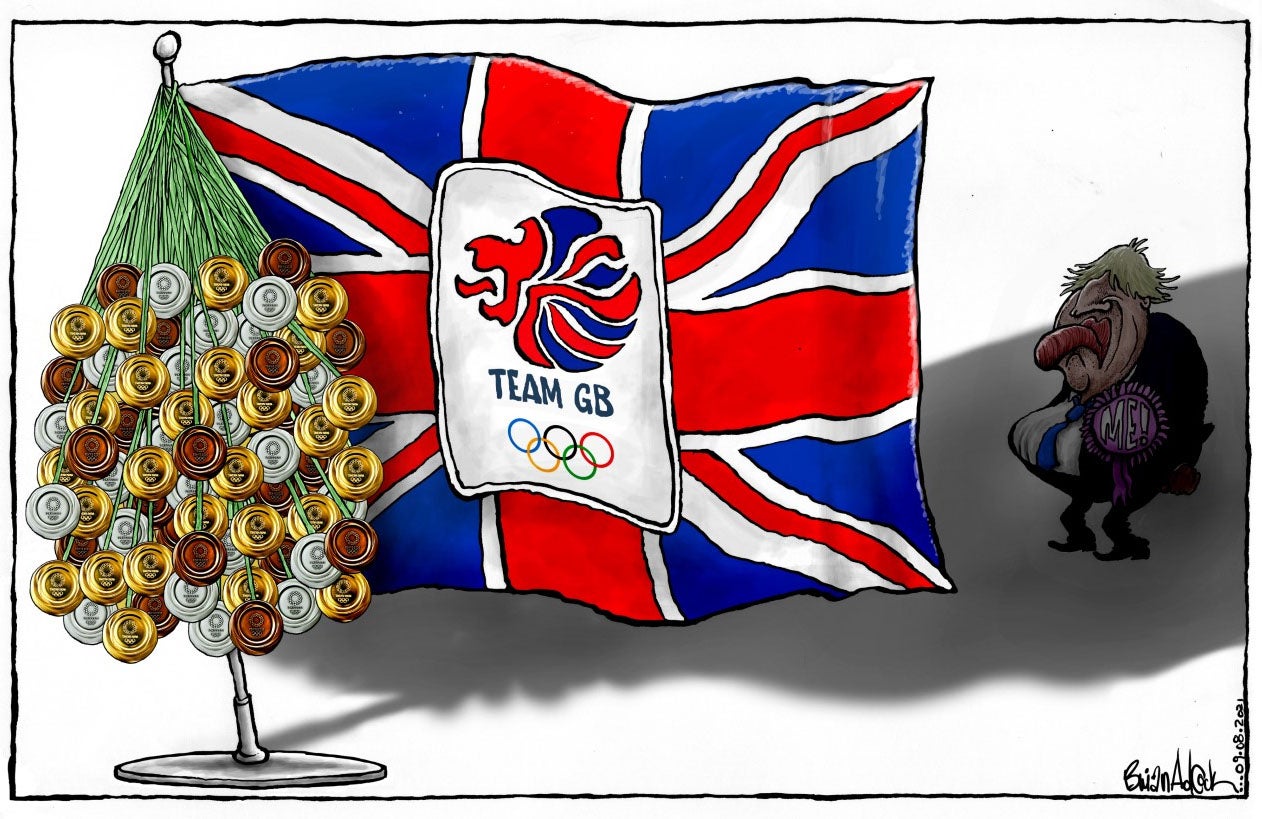For most people, the various gold rushes came in the morning. They were news to wake up to, rather than thrilling moments to revel in. The tricky time difference did much to mask the unavoidable sadness of the empty stadiums. The Tokyo Olympics were disfigured by the virus, but Covid-19, ultimately, was not enough to overpower the beauty of the Games, which is as ageless as ever.
Team GB won 65 medals, as many as it did in London, albeit fewer of them gold, and were only two down on their record total of 67, from Rio de Janeiro in 2016 (though few people are adding the caveat to this much repeated statistic, which is that there were 12 per cent more events to win in Tokyo – 339 compared to London’s 302).
To have maintained this phenomenal level of achievement at three Games in a row is a quite incredible achievement. It is a vindication of decisions made in the wake of Atlanta 1996, when Steve Redgrave and Matthew Pinsent won Great Britain’s only gold.
The strategy is now well known, and not without its controversies. A large pool of cash, some taxpayer, some National Lottery, is centrally distributed by UK Sport, with a ruthless agenda. Historically, money has also been spent where money can be shown to make a difference. Cycling and sailing, for example, are sports where significant advantage can be gained via technical innovation. If all an athlete requires to compete is, as Michael Johnson put it, “a pair of shoes”, there is not so much advantage around for money to buy.
It also means that funding can become entrenched. Success buys success, and others find it harder to break through. A delayed, crowdless Games, yielded many unpredictable results, so it is hard to say how much soul-searching is required, how ruthless the post mortem, in the wake of, say nearly £25m of funding yielding a solitary bronze and silver for rowing. Meanwhile, Bethany Shriever had to crowdfund her way to the Games and won BMX gold.
But that will certainly give UK Sport something to think about. Its strategy remains to win as many medals as possible, as efficiently as possible. It may be that the lower-hanging fruit is now to be found elsewhere, in fresher sports, and even younger athletes.
There is also absolutely nothing to suggest that the public appetite for this kind of success has diminished. Winning all these medals is not a cheap business. UK Sport spent £345m on the various funding rounds to Tokyo. As we now head towards Paris in 2024, £352m has already been signed off – including more sports than ever before, 36, receiving World Class Programme funding.
There seems little doubt now that this kind of huge Olympic success is becoming not merely enjoyed but expected. Of course, the greatest threat to Team GB success remains political. Team GB minus Scotland would be much diminished. Laura Kenny and Katie Archibald would not have won the madison without each other. There are other examples. Yet there is, at the time of writing, no reason not to expect success to continue.




Join our commenting forum
Join thought-provoking conversations, follow other Independent readers and see their replies
Comments